
In the world of consumer choices, preferences can vary widely. Some people buy only Lexus cars, while others buy only Mercedes, and still others prefer BMW. What do all these people have in common? It's their brand loyalty. In today’s intensely competitive marketplace, the abundance of choices has made consumers more selective than ever. If the brand fails to deliver, regardless of its size, people won’t purchase again. To succeed, you need to create a loyal customer base. To understand what makes customers loyal to a brand, it’s helpful to examine some examples of brand loyalty.
Here’s what we are going to cover:
- Determining Brand Loyalty
- Brand Loyalty vs Customer Loyalty
- Types of Brand Loyalty
- Top 26 Brands Known for Exceptional Brand Loyalty
Determining Brand Loyalty
Brand loyalty is when customers keep buying products or services from the same brand, instead of choosing alternatives from competitors.
Brand loyalty occurs when a customer consistently chooses the same brand over others, even in the presence of more affordable options. This is because brand loyalty is fundamentally rooted in perception. It is significantly influenced by how customers view your brand, including its actions and values. This type of loyalty includes an emotional bond that can be cultivated by establishing great relationships with your customers and producing high-quality products. Building an emotional connection results in a powerful bond and a competitive edge for the brand.
iPhone fans often show their loyalty by consistently purchasing the latest model upon release, while Samsung fans display similar loyalty by advocating for the brand’s innovation and versatility in their product lineup.
The goal of building brand loyalty is to inspire customers to advocate for your brand, support new products, and share their positive experiences on social media.
Many companies have invested significant time and money into product quality, marketing, and customer service efforts, aiming to captivate customers and position themselves as the go-to option among competitors.
x
Brand Loyalty vs Customer Loyalty
Customer loyalty and brand loyalty are closely connected yet distinct concepts. While it may seem that these terms are interchangeable, they actually represent different facets of consumer behavior.
So, what’s the difference?
Customer loyalty aims to attract and retain customers by meeting their needs and providing value within their budget. It involves competitive pricing, discounts, and exclusive offers to ensure repeat business. Essentially, it leverages consumers' purchasing power and preference for businesses that offer the best prices and deals, encouraging ongoing patronage.
The customer’s perception is your reality
Kate Zabriskie
Brand loyalty emerges from an emotional connection and commitment to a brand, shaped by customer perceptions and experiences. Influenced less by price and more by the company's reputation, product quality, marketing strategies, and overall message, this loyalty leads customers to keep buying from the brand, despite cost differences, due to their belief in its superior quality and service. This is evident in luxury brands such as Dior, Bugatti, Rolex, and Cartier.
x
Types of Brand Loyalty
When customers use products, they typically develop a specific image of them in their minds. Positive brand equity can generate a favorable impression, causing consumers to choose one product over competing ones, even when prices are comparable.
Here are 3 types of brand loyalty:
1. Hard-core brand loyalty is the type of loyalty when customers repeatedly purchase from the same brand and recommend it to others.
Apple, for example, exemplifies this type of loyalty. Every year, when Apple releases a new iPhone, many people rush to buy it before it's even released. Ever tried convincing an Apple die-hard that Android is superior to iOS? It’s like proudly announcing you’re a meat lover at a vegan party - prepare for an uproar! You’ll regret it instantly. Just goes to show, that Apple’s brand loyalty is nothing short of cult-like!
2. Split-customer brand loyalty refers to customers who are loyal to more than one brand, typically limiting their choices to two or three.
In the electronics market, a consumer may show split-customer brand loyalty to LG, Sony, and Samsung. They might choose LG for its innovative home appliances, prefer Sony for its high-quality audio and video equipment, and rely on Samsung for its advanced smartphones and tablets.
3. Shifting-customer brand loyalty refers to customers who frequently switch between different brands.
Customers may shift from Kia to Lexus as they seek more luxury features, or from Lexus to Tesla to embrace advanced electric vehicle technology, reflecting changes in preferences and priorities over time.
x
Top 26 Brands Known for Exceptional Brand Loyalty
Brand loyalty fuels growth as new customers turn into repeat buyers, who then evolve into brand advocates. These devoted fans frequently celebrate the brand by leaving positive reviews and making regular purchases.
Let’s now examine some examples of brand loyalty and insights that can help your business:
01. Amazon
.webp)
Amazon, an American tech giant, started as an online bookstore and now leads in e-commerce, cloud computing, digital streaming, and AI. Its success stems from prioritizing customer experience, making it the top choice for online shopping. Amazon has revolutionized online retail over the past two decades, offering everything from books, and furniture to electronics through its innovative business model.
The company’s Amazon Prime is one of the best loyalty program examples and the sheer number of subscribers is the proof. Customers remain loyal to the brand because of the diverse, high-value benefits and exclusive deals that significantly enhance their overall experience.
02. Coca-Cola

Coca-Cola's lasting appeal stems from its effective marketing, consistent quality, and emotional connection with consumers. The company excels in crafting iconic ads that resonate globally, embodying joy and unity. The sight of Coca-Cola's Christmas trucks, with their bright red color and familiar jingles, signals the festive season, evoking warm, cherished childhood memories.
03. Lego
.webp)
Lego, one of the world’s largest toy manufacturers, has a dedicated following. The company appeals to both children and adults and is known for its innovative customer engagement through Lego Ideas, where users’ designs can become actual products, earning them a share of the sales.
04. Starbucks
.webp)
Starbucks has built a strong customer base through quality coffee, a welcoming ambiance, excellent service, and savvy tech use. The Starbucks app enhances convenience with features like mobile orders and a rewards program offering free drinks and exclusive deals, boosting customer retention. Additionally, the company's focus on sustainability and community involvement aligns with consumer values, deepening their commitment to the brand.
05. Apple

When talking about brands, Apple first comes to mind. It is one of the leading brand loyalty examples. Known for high-quality, premium products, Apple's commitment to excellence is key to retaining customer loyalty. Their products not only excel in quality but are designed with a smooth, intuitive user experience, reflecting their meticulous attention to detail and quality. Initially skeptical, I now understand the appeal of their products, especially after becoming an avid iPhone user. Apple's design philosophy centers on user needs, combining sleek, minimalist aesthetics with practicality. Their products also integrate seamlessly, creating an ecosystem that discourages users from choosing competitors. Apple's success is largely due to its perfectionism and dedication to flawless products.
06. Sephora

Sephora needs no introduction. It has one of the best points-based loyalty programs, boasting over 34 million beauty fans. Customers earn rewards and discounts based on how much they spend with the retailer. What’s more, Sephora has introduced Beauty Insider Challenges, a gamified approach to boosting customer engagement.
Another reason why Sephora has such a large consumer base is that it offers a wide assortment of products. The beauty retailer sells not only its products but also those of other brands.
By listening to their clients, they’ve managed to build a strong brand community. They’ve also gained popularity due to their well-rounded shopping experience, both in-store and online.
07. GoPro

GoPro is an internationally famous camera manufacturer known for its wearable, mountable, and affordable HD video cameras. Their wearable cameras are easy to use and are popular among adventure seekers and sports enthusiasts.
GoPro has been building brand loyalty through the use of user-generated content (UGC). If you check out GoPro's Instagram page, you'll find that most of the content is created by its users. By concentrating on a niche market and cultivating a community of like-minded people, GoPro has revolutionized its business. Its impactful use of visual content and frequent video competitions enhance its strong social media presence, inspiring creativity and adventure.
.webp)
08. Tesla

Electric cars are rapidly gaining momentum, highlighted by Tesla’s industry-leading brand loyalty rate of 68.4%. Tesla promotes clean energy and reduces global reliance on fossil fuels through its electric vehicles and renewable energy offerings. The company has managed to appeal to a new segment of environmentally conscious customers by sharing the same values.
Another reason why Tesla cars are popular is their advanced electric propulsion technology, extensive driving range, frequent software updates, minimalist design, minimal maintenance, and lightning-fast acceleration. Their dedication to customer satisfaction has helped them cultivate a loyal following.
09. Nike

Nike has seamlessly integrated sports functionality with stylish design in their products, making them favorites for both athletic and everyday use. Their shoes are some of the most popular on the market because they are comfortable and durable. The company has been around for quite some time and successfully engages athletes who captivate their target audience. Furthermore, Nike’s loyalty program boasts more than 100 mln members and its community engagement is second to none. Their members spend roughly three times more than regular shoppers.
10. Harley-Davidson

Harley-Davidson motorcycles have been in business for many years. They are known for their iconic and timeless design, rich history, distinctive exhaust sound, a sense of freedom, and strong community.

The brand has a loyal following, with riders creating clubs, going to rallies, and joining charity events together. Organizations such as the Harley Owners Group (HOG) and similar Harley-centric groups foster a sense of community, uniting members into a brotherhood with shared interests.
11. Patagonia

Patagonia is one of the most trusted outdoor clothing companies in the world. They also offer a wide range of outdoor products, including sleeping bags, backpacks, camping food, and more.
One of the main reasons people are loyal to this brand is because it is an ethical company that delivers high-quality clothing and actively supports environmental conservation. Patagonia's loyalty program, "Worn Wear," promotes sustainability by encouraging customers to buy used items, repair their gear, and recycle old clothing.
What is your current returning customer rate?
Want to close the gap?
12. Dunkin’ Donuts

Dunkin' Donuts has been serving coffee, donuts, and other food items since 1950, establishing a wide variety of menu offerings that cater to diverse tastes. The Dunkin' Rewards program rewards loyal customers with points for each purchase, which can be redeemed for free food and drinks. The company is cultivating a loyal customer base through smart investments in technology, the development of a customer-focused mobile app, and effective social media marketing.
13. Adidas
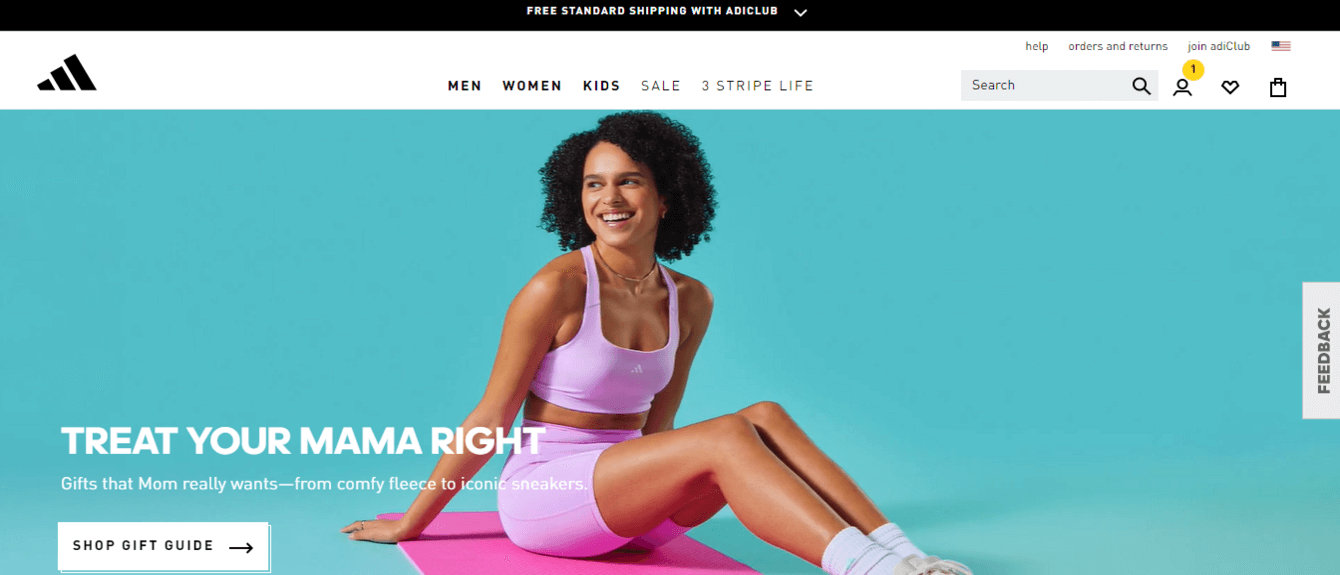
Adidas is a well-known and popular sportswear company, favored by many for its long-lasting, comfortable, durable, and fashionable products. Adidas equally prioritizes customer satisfaction and innovation, which contributes to its strong popularity among consumers. They design products tailored to the needs of their customers. Adidas' adiClub loyalty program lets members earn points, level up, and enjoy exclusive rewards, promotions, events, and more.
In addition, the renowned European brand also benefits from its strong ties to football and its commitment to environmental, social, and governance (ESG) matters.
14. IKEA

IKEA is popular for offering practical, stylish furniture and home decor. One key factor behind IKEA's popularity is its affordable pricing. Another reason is that their stores provide an immersive shopping experience, featuring room displays and a cafeteria that enhance their appeal. In some countries, their loyalty program offers a free drink to visitors. IKEA has excelled in transforming each purchase into an enjoyable experience.
15. MINI

MINI has established itself as a manufacturer of fun-to-drive, easily customizable, and reasonably practical cars with good fuel economy. MINI owners are known for their exceptional brand loyalty and enthusiasm compared to other car owners. These cars handle well and take corners quickly and safely. MINI's commitment to sustaining relationships with its customers is a key reason why so many people love the brand.

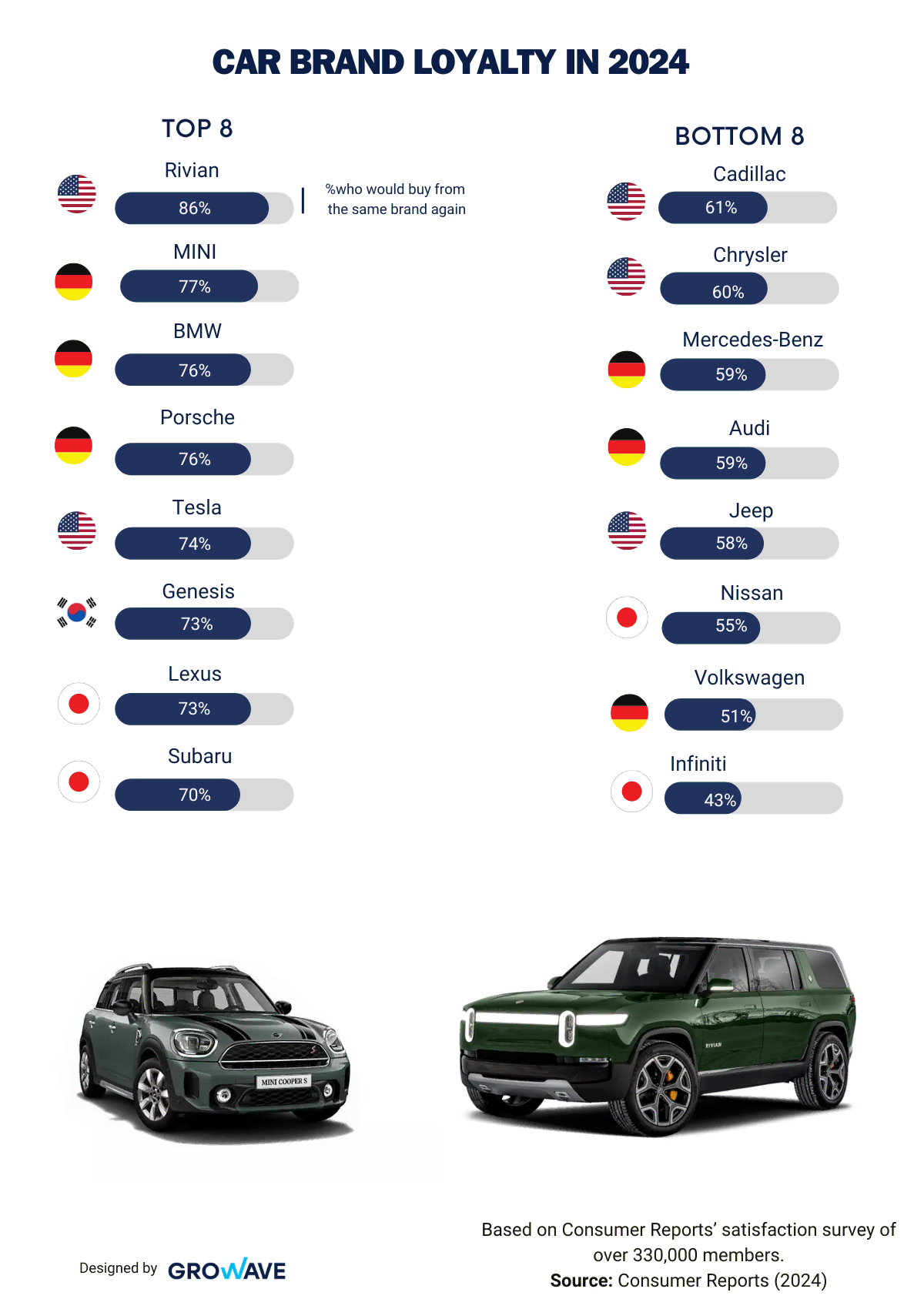
16. The North Face
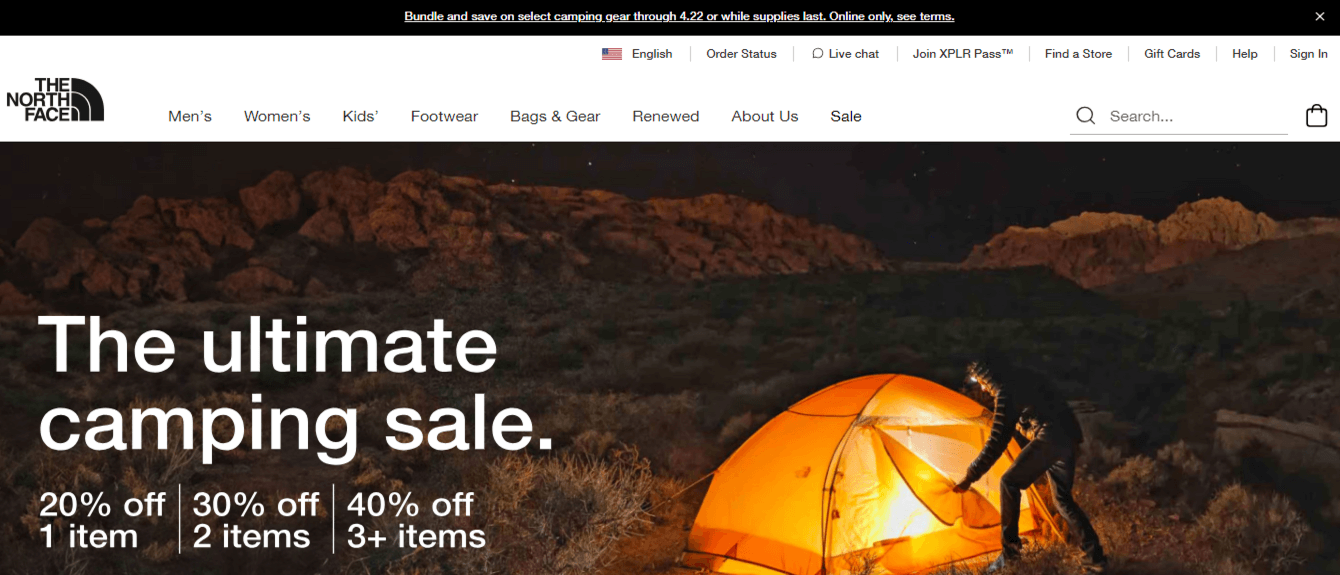
Since 1966, The North Face has been supplying customers with outdoor clothing and gear. Through their high-quality outdoor gear, and connection to the natural world, the company has managed to capture the hearts of people from all over the world. Moreover, its sustainability initiatives align seamlessly with the values of its target audience. The company rewards its customers through the XPLR Pass loyalty program, offering exclusive experiences both in-store and online. Additionally, The North Face has iOS and Android apps that are integrated with its loyalty program. A significant portion of the brand's revenue now comes from online sales. Their large dedicated customer base comes from a foundation of trust and strong customer engagement.
17. Samsung
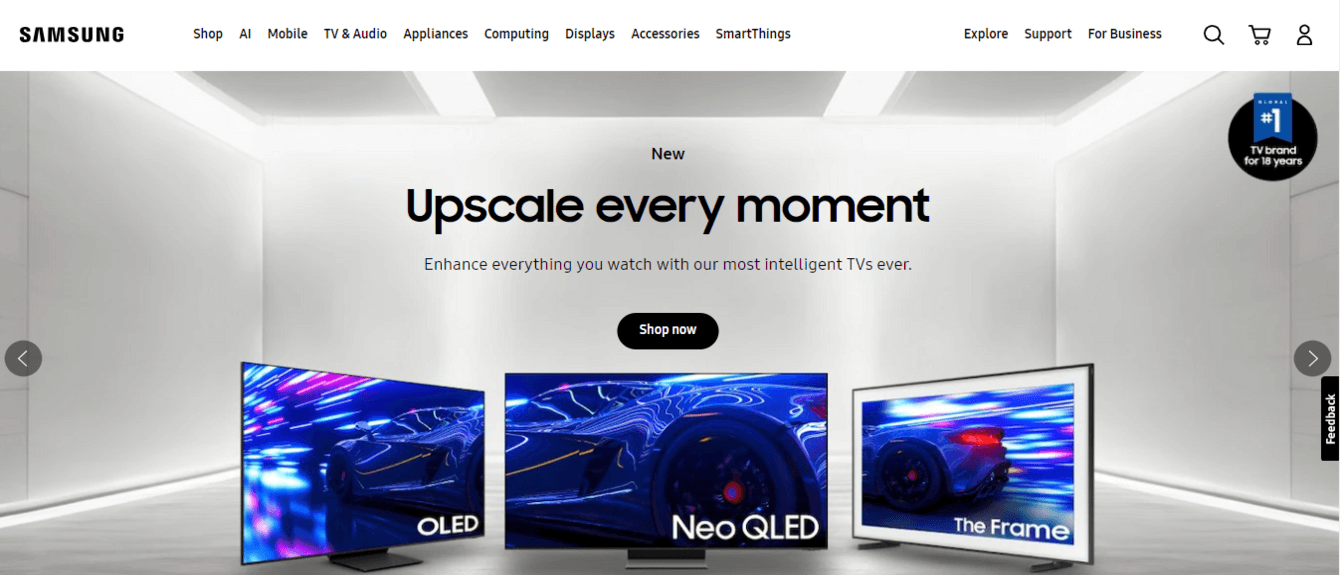
Samsung is one of the most recognized names in the world of electronic devices and is loved by many. Every day, Samsung delivers millions of products-from washing machines, and TVs to smartphones-to customers worldwide. The company has positioned itself as a leader in innovation, style, and reliability, successfully attracting and maintaining a devoted customer base. Samsung devices work seamlessly together, connecting phones, TVs, and appliances for a streamlined user experience.
18. Netflix
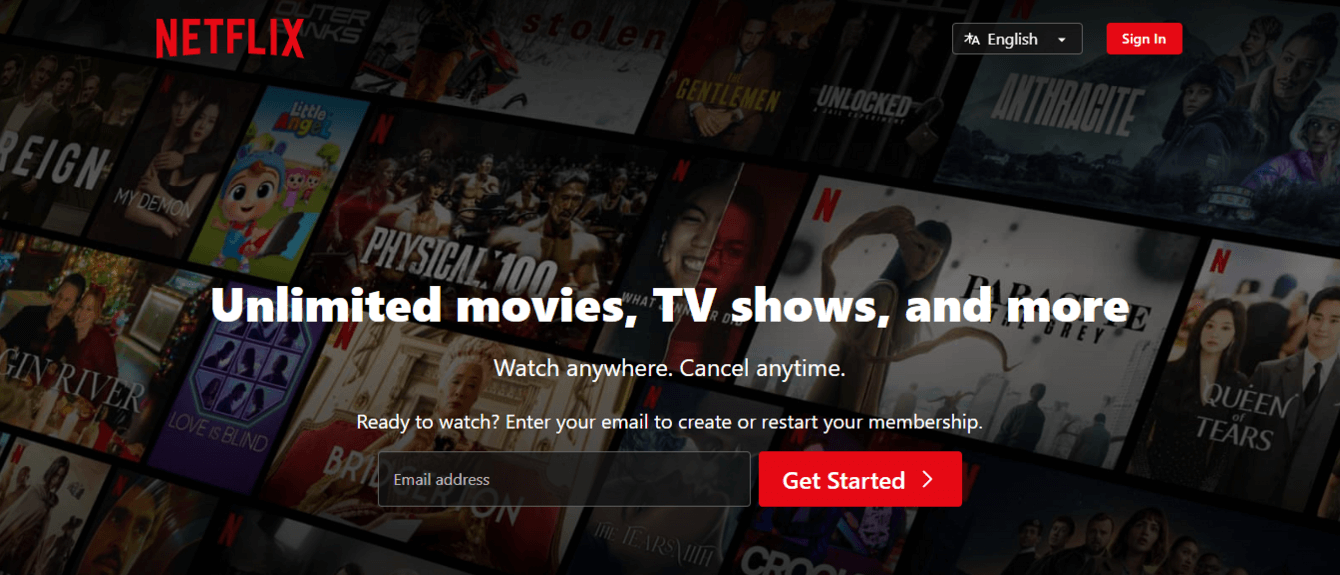
Netflix's brand loyalty is no surprise. It is one of the best subscription-based streaming services, offering a vast collection of TV shows, movies, documentaries, and an easy-to-navigate interface. Netflix fans can view content whenever they choose and on any device they want. In addition to that, it offers ad-free content. Netflix has so many loyal fans because it prioritizes its subscribers' needs.

19. Star Wars
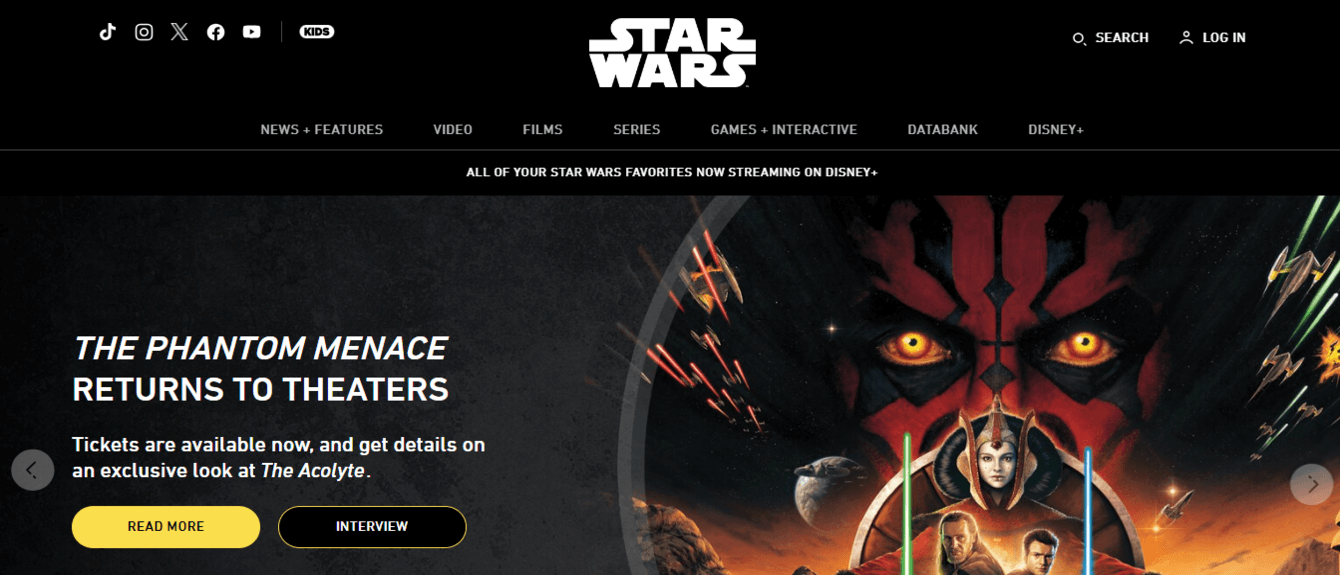
There can be no list of brand loyalty examples without including Star Wars. It transcends generations, connecting individuals with its timeless storytelling. In a galaxy of competitors, nothing rivals the force of a strong brand identity, and Star Wars is a perfect example. With stories expanding as rapidly as a clone army, the Star Wars franchise has 12 movies, more than 400 books, and countless conventions. Overall, the franchise has successfully tied its brand identity to emotional engagement from its fans.
20. Lululemon
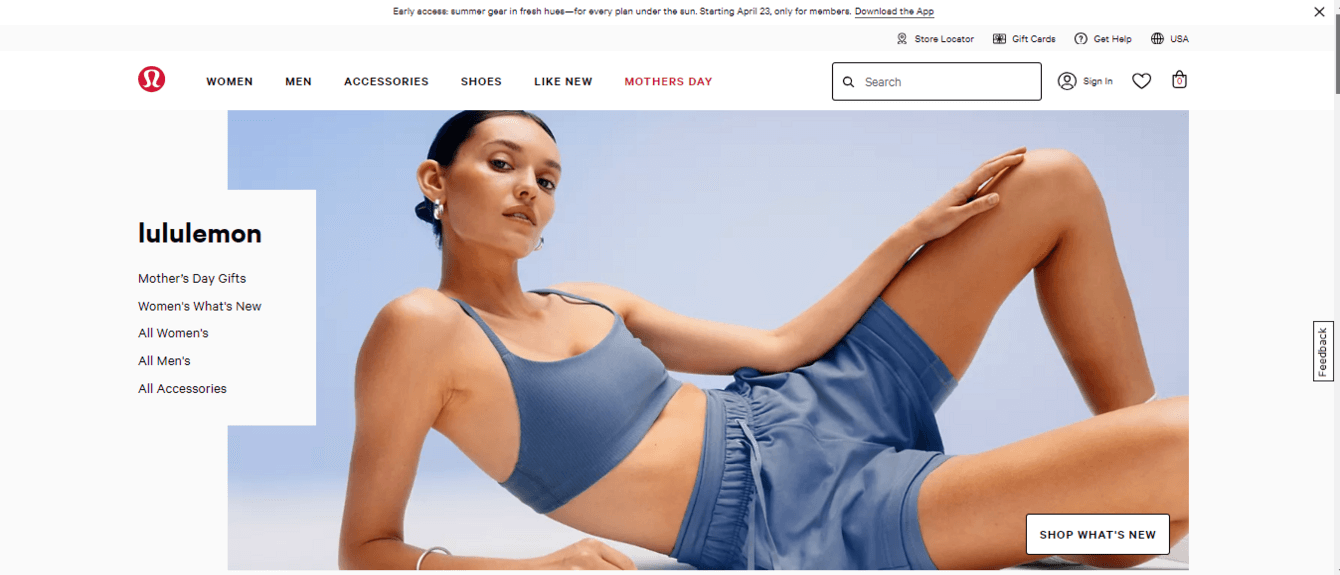
Lululemon is an athletic apparel company that truly lives up to the hype. It provides high-quality workout clothes known for their comfort, durability, and versatility. Although the products are not cheap, loyal fans are ready to pay more for their excellent quality and fit. The famous athletic wear retailer not only sells athletic apparel to shoppers but aims to transform its stores into community hubs that promote wellness, mindfulness, and healthy living, serving as centers for learning and discussion. Another top reason customers choose their clothes is its customer service. The team goes above and beyond to satisfy their clients.
21. Ben & Jerry’s
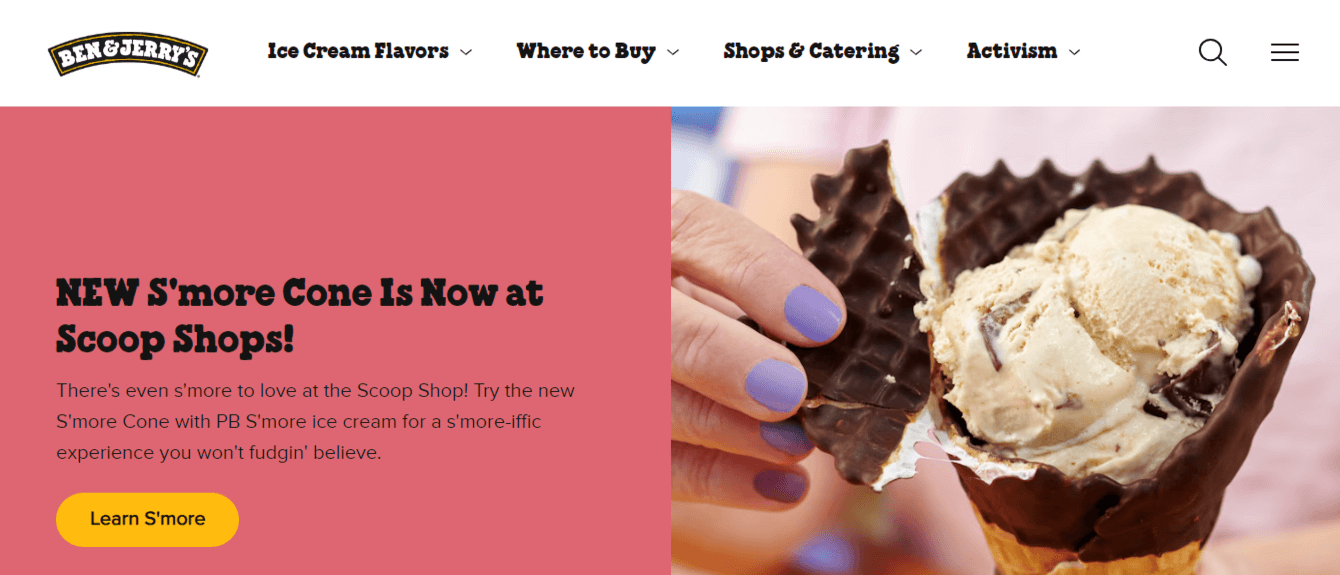
Ben & Jerry’s is one of America's most beloved ice cream brands. The ice cream captivates you with its enticing flavors, tempting you to sleep on the sidewalk just to try the next one. It is just that good.
However, the ice cream’s appeal isn’t just about taste, Ben & Jerry is also known for its commitment to social and environmental responsibility. The company takes this commitment very seriously. They engage in a wide range of activities, such as cleaning up rivers and beaches, helping the homeless and unemployed, and providing grants to grassroots organizations, to name just a few. They even treat their cows well. Therefore, it’s no surprise that it has some of the best brand-loyal customers.
Even Marvel Studio's blockbuster "Avengers: Infinity War'' features references to fictitious Ben & Jerry's ice cream flavors. Doctor Strange mentions "Stark Raving Hazelnuts," and Wong mentions "Hunka-Hulka Burning Fudge."
22. Spotify
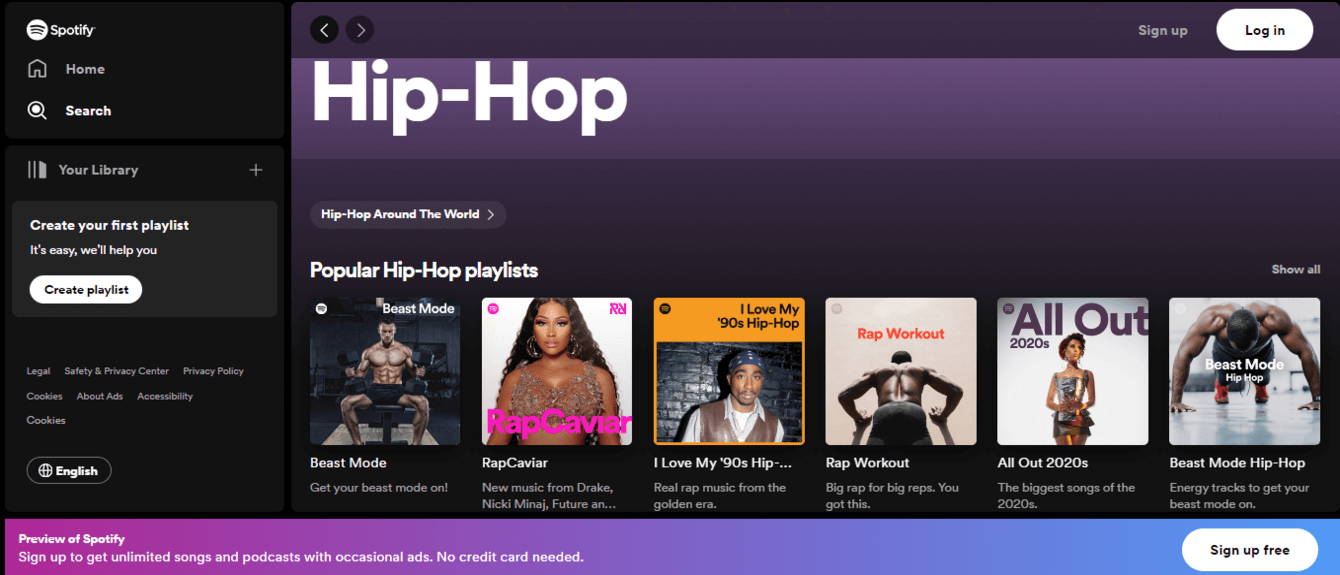
Spotify is the world’s leading audio streaming subscription service, offering access to an extensive selection of music, video, and podcasts. Spotify supports multiple platforms, so you can listen to it on devices such as your smartphone, tablet, computer, laptop, smartwatch, gaming console, TV, and even in your car. With Spotify, you have access to 100 million tracks and 5 million podcasts. Every music aficionado can find a song that speaks to their heart. Spotify's highly personalized customer experience is a crucial factor in maintaining its loyal customer base.

23. Crocs

Crocs is one of the fastest-growing footwear companies. It brought its brand back to life by enabling personal expression with products like CrocsLight, which allows for easy customization and fun self-expression. Furthermore, Crocs has collaborated with celebrities such as SZA, Bad Bunny, Diplo, and Post Malone, to name a few, to broaden its reach.
Through their Crocs Cares program, the brand has donated over 1 million pairs of shoes to global healthcare workers since March 2020, demonstrating their commitment to community support - a value they share deeply with their customers. By being a socially responsible company that focuses on customer experience and effective marketing, Crocs has managed to build an army of loyal fans.
24. Chick-fil-A
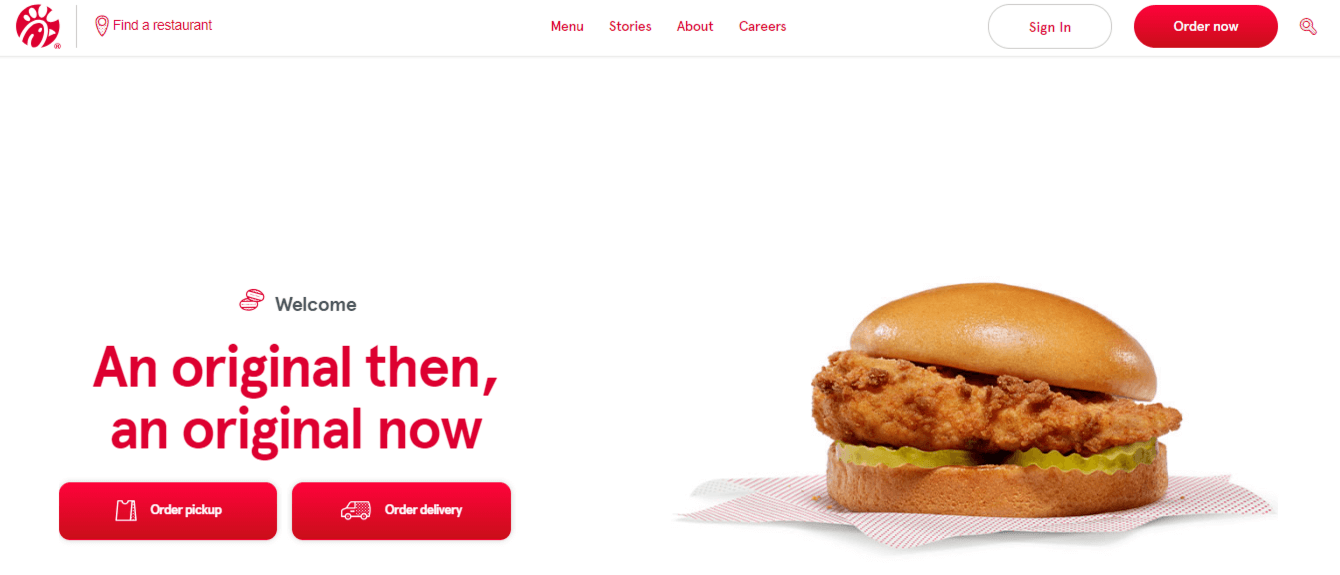
Chick-fil-A is among the biggest family-owned restaurant chains in the U.S. and has some of the most loyal clients ever. They have successfully fostered emotional engagement and loyalty. On rainy days, Chick-fil-A attendants walk guests inside with umbrellas, showcasing their superb customer service. Its commitment to exceptional customer service and food quality could be the key to its strong brand loyalty.

25. Costco
.webp)
Costco is a warehouse club retailer that sells a wide variety of items. Members pay a fee to shop there and can buy items in bulk at low prices. Costco drives loyalty through memberships. Besides pricing, another reason why the company retains loyal customers is its exceptionally generous return policy compared to other retailers. Costco prioritizes customer service and marketing to enhance the shopping experience and promote its brand and membership benefits.
26. Disney+
.webp)
Disney+ is one of the best examples of brand loyalty, offering a streaming service where viewers can watch movies, series, and originals from celebrated franchises like Disney, Marvel, Star Wars, National Geographic, Pixar, and more. Disney does a great job of listening to their customers' needs by delivering great content and a seamless user interface.
x
Conclusion
You now understand what brand loyalty means, how it differs from customer loyalty, and the types that exist. Through the best examples of brand loyalty, you have seen the effective strategies these brands employ to gain loyal customers. Additionally, you've learned how to develop brand loyalty. The essence of brand loyalty lies in its ability to forge an emotional connection, leading to a strong bond and a competitive advantage for the brand. This mutual benefit ensures that customers and companies succeed together, keeping the brand popular and successful for years to come. As your customer base expands, consider implementing a loyalty program and continually improving your customer service to keep your customers loyal to your brand.
FAQ
What is brand loyalty?
Brand loyalty refers to a customer's consistent preference for a particular brand over competitors. This loyalty is driven by positive experiences, emotional connections, and perceived value, leading customers to repeatedly choose the same brand, even when alternatives are available.
What are the types of brand loyalty?
hard-core loyalty means always choosing one brandsplit loyalty means rotating between a few brandsshifting loyalty means frequent switchingoccasional loyalty means buying only during salesno loyalty means always choosing the cheapest or most convenient option
What are some examples of strong brand loyalty?
Companies like Apple, Nike, and LEGO have cultivated strong brand loyalty by consistently delivering quality products and aligning with their customers' values. For instance, Apple's customers often eagerly anticipate new product releases, showcasing their deep connection to the brand.
How does brand loyalty differ from customer loyalty?
While both concepts aim to encourage repeat business, brand loyalty is rooted in emotional attachment and perception of the brand's values and quality. In contrast, customer loyalty often stems from practical incentives like discounts or convenience.
How can businesses build brand loyalty?
offer consistent qualityreward repeat purchasesrespond quickly to feedbackpersonalize communicationalign with customer valuesbuild a strong communitystay authentic and transparent
Trusted by over 15000 brands running on Shopify








